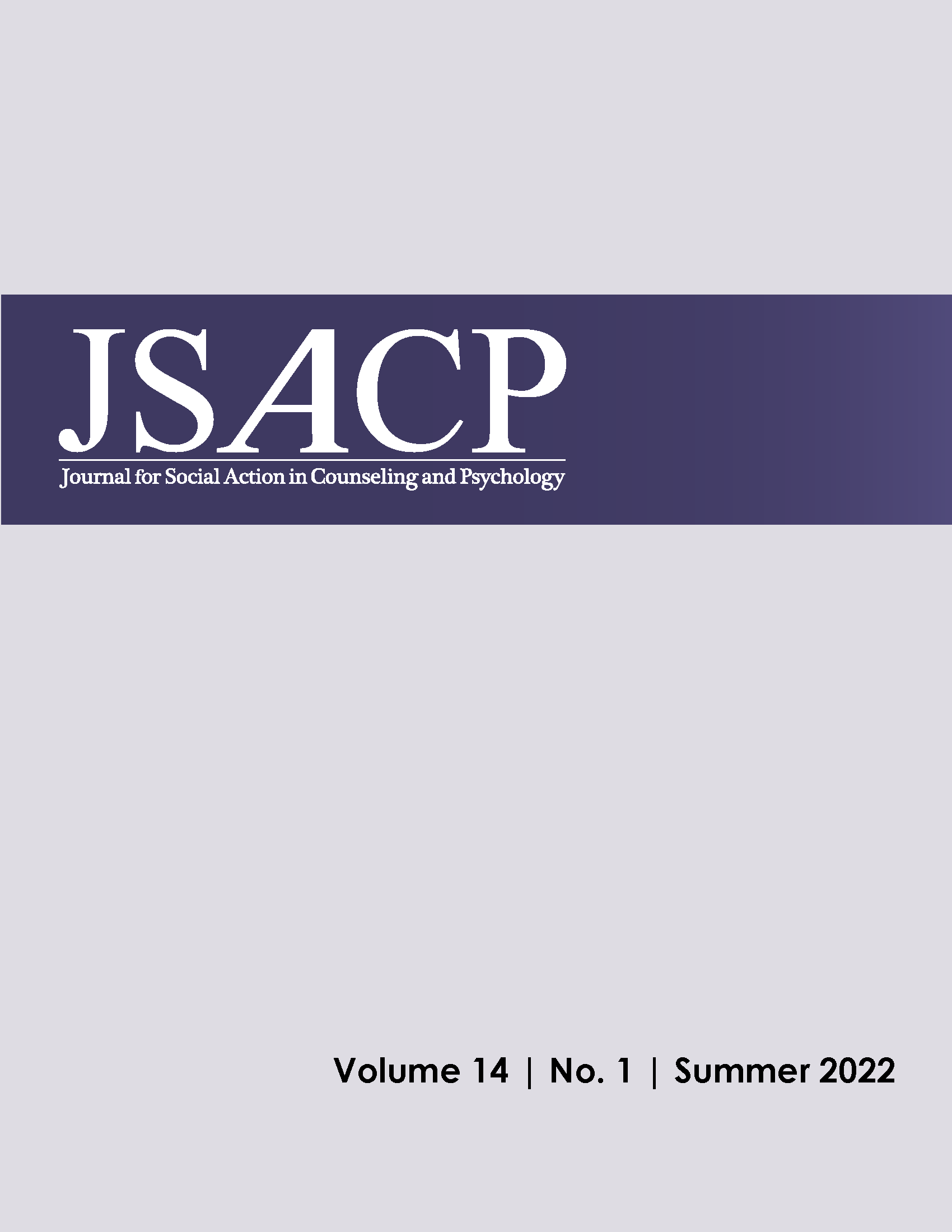The Good, the Bad, and the Ugly: Experiences, Barriers, and Self-Efficacy Enhancement for Social Justice-Oriented Faculty
DOI:
https://doi.org/10.33043/JSACP.14.1.53-77Keywords:
social justice, activism, counseling psychology, academia, training and education, self-efficacyAbstract
Although a commitment to social justice is central to the identity of counseling psychologists, little is known about how faculty contribute to a culture of social justice. The current study aims to explore engagement in social justice by answering six questions: 1) how do faculty define social justice, 2) how do they engage in social justice with students, 3) what barriers exist in relation to their engagement, 4) how often do faculty engage in social justice with students, 5) how supported do faculty feel in relation to their social justice efforts, and 6) what impact does training have on social justice self-efficacy and subsequent engagement? To examine these questions, a nationwide sample of 72 faculty from APA-accredited counseling psychology programs completed an online survey. Findings from thematic analysis revealed several themes across faculty definitions of, and engagement in, social justice, despite a number of barriers they also identified. Results from quantitative analyses suggested that most faculty engage in social justice. However, many are operating with little support. Several barriers to engagement exist, but graduate school training in social justice may help to eradicate those barriers. Faculty members who received training in social justice as students reported significantly more social justice self-efficacy now. Additionally, faculty with more social justice self-efficacy reported greater engagement in social justice in their professional and personal lives. Implications for promoting social justice among faculty are discussed, including practical suggestions for fostering self-efficacy, building a strong community, promoting adequate training, accessing role models, and engaging in self-care.
Downloads
Downloads
Published
How to Cite
Issue
Section
License
Copyright (c) 2022 Jennifer Taylor, Amira Trevino

This work is licensed under a Creative Commons Attribution-NonCommercial-NoDerivatives 4.0 International License.
By submitting to JSACP, the author(s) agree to the terms of the Author Agreement. Beginning in 2018, all authors retain copyrights associated with their article contributions and agree to make such contributions available under a Creative Commons Attribution-NonCommercial-NoDerivatives 4.0 International license upon publication in JSACP. Copyrights to articles published prior to 2018 have been transferred from the authors to JSACP.









